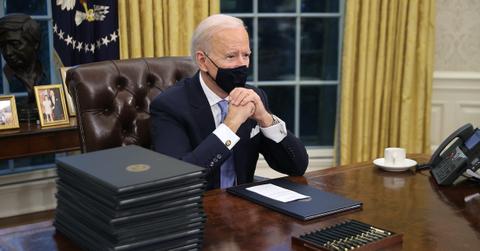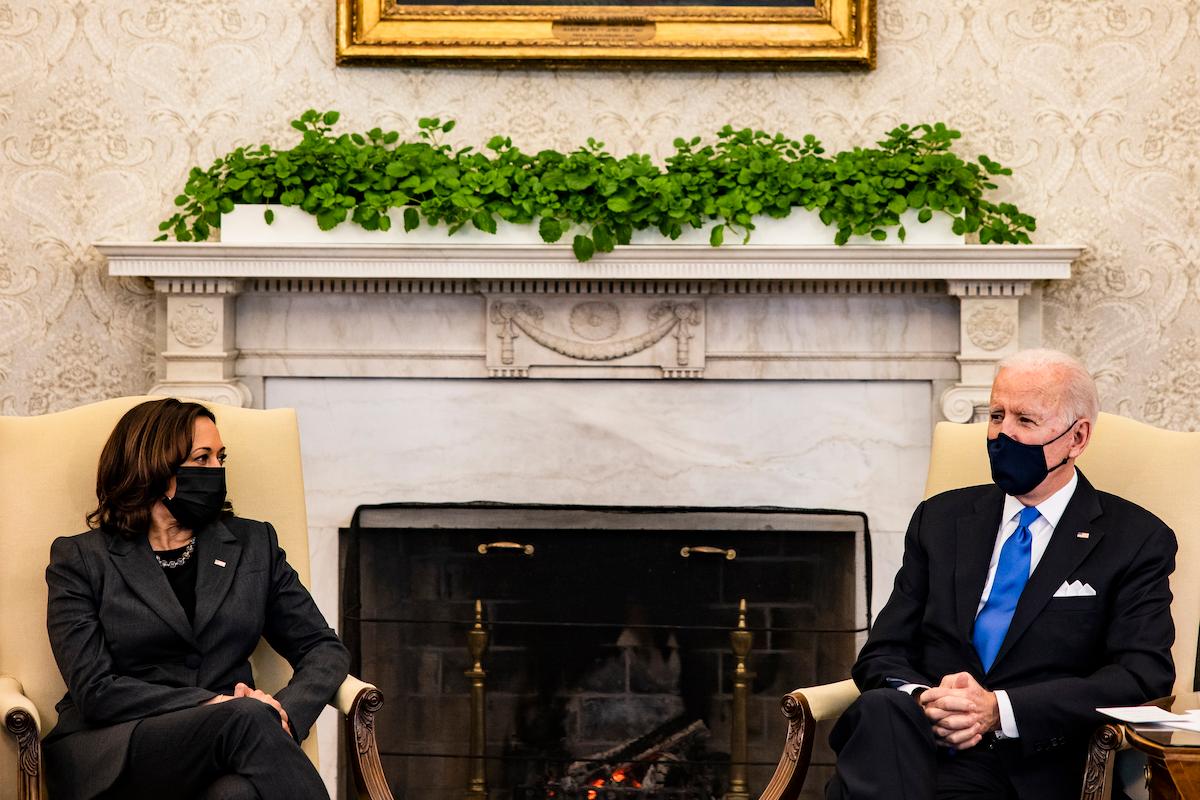Biden May Allocate $1 Trillion to Fighting Climate Change, Under Proposed Economic Plan
Published March 24 2021, 12:07 p.m. ET

President Joe Biden and his advisers are preparing to unveil a $3 trillion dollar economic plan in Congress. This plan would dictate much of his administration’s priorities in the near future — and many are happy to see that Biden's package allocates $1 trillion to the climate crisis.
The plan has not yet been released to the public, nor has President Biden officially signed off on it. But with expectations high that Congress will pass the bipartisan bill, it’s a pivotal moment for the administration.

The economic plan has a heavy focus on climate.
The plan is a variation of Biden’s “Build Back Better” plan, broken down into two bills — the first of which is climate-centered, as per Grist.
According to documents obtained by The New York Times on Monday, March 22, the first half of the package reportedly allocates $1 trillion toward building tangible infrastructure. Much of that would include infrastructure to support low-impact transportation, such as electric vehicle charging stations, train lines, roads, bridges, and ports, as well as renovations to the electric grid. This prong would also designate funding for energy-efficient affordable housing, rural broadband, 5G development, and more.
“This could be the most promising opportunity to make progress on decarbonization across the economy that the U.S. has had in a long time,” John Larsen, director of climate and energy at Rhodium Group, told Quartz. “And as far as getting very quick returns on investments, the power sector is the most important place to make progress.”
During his campaign, Biden set tangible climate goals for his presidential administration, including: transitioning the U.S. away from fossil fuels and to electric energy by 2035; achieving carbon-neutrality in new buildings by 2030; and installing 500 million solar panels by 2025.
To achieve these goals, the U.S. government must invest in new technologies and infrastructure. Not only will these investments support the fight against the climate crisis, but they will also create jobs, bolster the economy, and potentially reduce public health issues that are exacerbated by burning fossil fuels and other means of pollution.
The economic plan also aims to help people in need.
The package's second bill focuses on “human infrastructure” — specifically, it will finance a series of programs to help people in need, including education programs for students, workers, and mothers. It will also increase health insurance subsidies for Americans with low-to-middle incomes, and designate tax credits to reduce childhood poverty, as per The Times.
For this $3 trillion package to go into effect, not only does Biden have to officially sign off, but so does Congress. And even though both the Senate and House of Representatives currently have (narrow) Democratic majorities, NBC News reports that the White House is already anticipating not getting enough Republican support, and the bill not being approved by Congress.
One potential solution would be breaking the bill down into smaller pieces of legislation, the U.S. Chamber of Commerce’s Neil Bradley said, as per The Times. And according to NBC News, some White House staffers and Democratic Congresspeople are reportedly already working on doing just that.
Whether or not this bill passes, it’s significant that such a massive bill targets climate change — while also working to create jobs, support the economy, and benefit Americans in need.